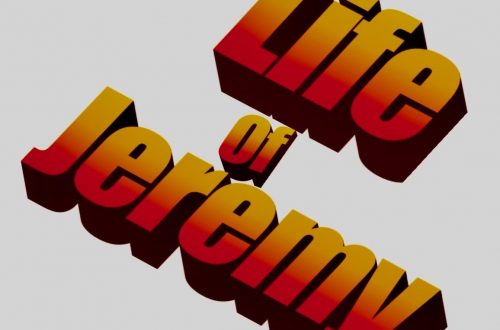This is not a coherent post, rather some scribbled thoughts. It’s cathartic for me, so just bloody read it.
There’s still a lot we don’t know about ‘Galley-Gate’ (or ‘How Green was my Galley’, as tim noted yesterday), but there are some things we do know.
It was revealed Wednesday that police sought the consent of the Serjeant at Arms, Jill Pay, before entering Damian Green’s offices. Consent was given, albeit police had no warrant, a fact Jill Pay could have used to deny police access. The police are not responsible for the fact that Jill Pay does not know her job.
According to his solicitor, Neil O’May, Christopher Galley, the 26 year old self-avowed Tory mole at the centre of the this affair, first started leaking Home Office documents to Green “a little over two years ago”. In June 2006 (otherwise known as “a little over two years ago”) , Galley and Green met to discuss the former’s employment prospects on the staff of Green. Galley didn’t get the job, which might lead a cynic to question why he spent the next 2 years furnishing the MP who rejected him with Home Office secrets?
We’re told that Galley’s 20 or so leaks to Green were at once trifling, insignificant tidbits, but also categorically in the public interest. We’ll have to take that on trust, of course, as Damian Green is so far refusing to list the 20 or so leaks he received from Galley. Let me run that one by you again: all Galley’s leaks were in the public interest, but Damian Green won’t let us know what they are.
One of the handful of leaks Green has referred to relates to a draft letter from the HO to Downing street indicating that a recession might lead to higher crime. I don’t know about you dear reader, but I feel cheated not having been informed that some people within the HO had got as far as drafting a letter that hints at a prospect of hard times leading to higher crime. “Don’t shoot the messenger” pleads O’May. “Pull the other one,” says I.
I’m old enough to remember Clive Ponting. Clive Ponting was a genuine whistleblower rather than a peddler of Westminster tittle-tattle. He exposed a Thatcher government’s lies concerning the sinking of the Argentinean cruiser Belgrano: when the vessel had first been sighted; its location and direction when it was sunk by a British submarine. As a citizen, I do have a right know the basis upon which my government commits acts of war and when I’m lied to, I expect civil servants to blow HMG’s cover. I demand they do. To ascribe Galley (and Pasquil, for that matter) the title “whistleblower” trivializes the acts of those like Ponting; non-partisan civil servants who wrestled with the dilemma of balancing their obligations to the government of the day with the public’s right to know when they are being lied to.
Notwithstanding the above, I accept that leaking of what barely passes as trivia is probably here to stay. I don’t necessarily believe this is a bad thing, either, so long as it’s not politically motivated (until the system of government in this country is rebuilt from the ground up, a neutral civil service is the sine qua non of the state’s ability to function). But equally, I don’t think a leaker needs to have revealed the coordinates of Britain’s nuclear submarine fleet before he/she becomes a national security liability. It might not be matter of national security that Gordon Brown sleeps with a teddy bear, but if the only way I could know this was to have access to the PM’s sleeping quarters….you get the picture? Sir David Normington, as the HO’s most senior civil servant, made a judgment that the systematic leaking of non-security related but still difficult to know information constituted a risk, and he called in the police. Are critics seriously suggesting that he should have waited until national security had been incontestably breached before he took action?
In recent days, I’ve heard an awful lot of guff about threats to the sovereignty of parliament, police states and the trampling of some of our longest standing democratic traditions. There are even those who, bizarrely and with faces straight, lament a lack of ministerial interference in police enquiries, as in, Jacqui Smith should have told the police they were not welcome at the palace of Westminster. Do these people actually know what happens in a police state? A criminal justice system and those who oversee it operating at the whim of political masters is as succinct a definition of ‘police state’ as you’re likely to encounter.
And what of the unprecedented criticism of an ongoing police enquiry from, amongst others, the leader of HM’s loyal opposition and the Chairman of the Metropolitan Police Authority (Boris) – both of whom just happen to be Tories? Or Cameron’s entirely conditional support for the operational independence of the police? I also hoped rather more people would be aghast at the prospect of a police investigation being stopped in its tracks, not because the trail of evidence had run dry, but because the situation had become too “politically volatile”. This was the phrase of choice used by political commentators to explain why it is that the Met will eventually drop their investigation. You can conclude that police have mishandled this enquiry if you like, but you ought to be able to find room to be appalled that MPs are capable of producing just enough political volatility to ensure plod closes his files.
No, MPs are not above the law, but they apparently have it within their gift to move beyond its reach. Just ratchet up the political volatility a few notches and you’ll be fine, honourable friend.
People need to ask what sort of relationship they want with their political masters. Suspicion and mistrust at the heart of government inevitably lead to an increase in chats in the corridor, fewer email exchanges and more meetings without minutes. Christopher Galley is to freedom of information what Karen Matthews is to child-rearing. If people genuinely seek greater transparency in government, don’t expect to find it in a civil service riddled with politically-motivated blabber-mouths.
Mark Twain: “No public interest is anything other or nobler than a massed accumulation of private interests.”


